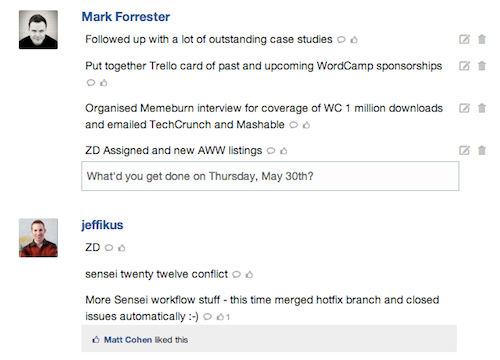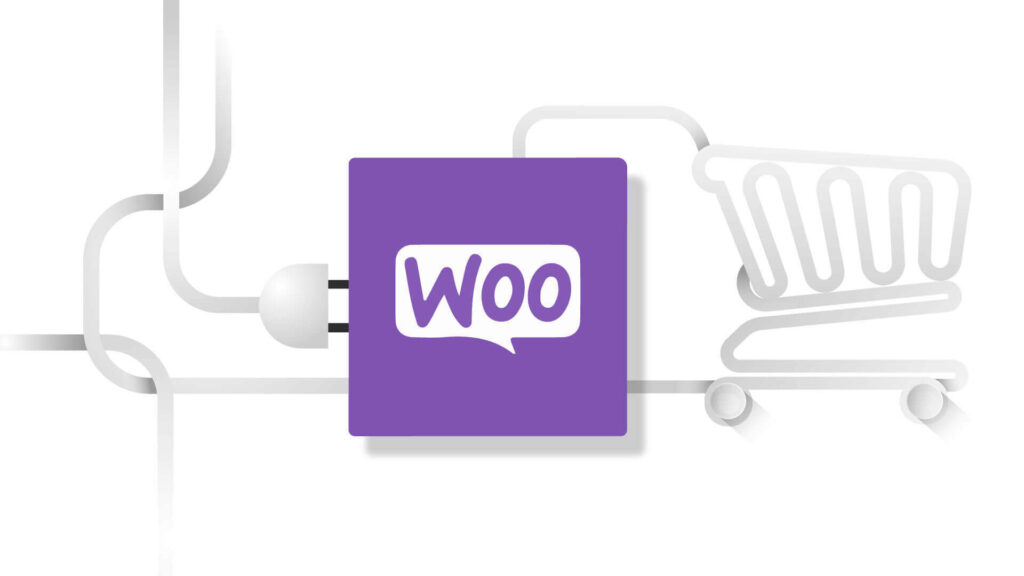The multi-million dollar company WooThemes started with a single email, as a small side project of Magnus Jepson in Stavanger, Norway, Adii Pienaar in Cape Town and Mark Forrester, then in London.

From that one email sprouted a bootstrapped company that produces a rich catalog of WordPress themes and plugins, serving 450,000 users. And this impressive success emerges from a distributed team of only thirty people, spanning seven countries.
Making Distributed Culture Work
Sustaining the company’s remote roots was a natural but conscious decision by the founders. “We wanted to make sure that the business was built around our lifestyles, rather than dictate our lifestyles,” explains co-founder Mark Forrester.
Ten employees work in the Cape Town office but there are no location requirements. Mark appreciates the advantage of going borderless: “Being able to pick the cream of the crop from anywhere in the world is hugely beneficial.”
Indeed, WooThemes’s hiring tactics tackle the accountability challenges of remote working by giving precedence to personality and fit before ability to ensure that the cream of the crop stays at the top in its environment of trust and enthusiasm. Mark reports, “The culture is to have lots of fun with what we’re doing and to employ people passionate about WordPress and content publishing. A strong attitude and desire to share in our success is more important to us than experience and aptitude.”

An integral part of that fun, passionate company culture is the annual WooTrip — to destinations like the Austrian Alps and this year’s retreat to WordCamp in the Netherlands — to meet, socialize, and cement a sense of cohesion. Mark comments, “Even though we’re all over the place, we like everyone to feel like they’re a part of a small team.”
Overcoming Growing Pains
Especially after the launch of WooCommerce, an e-commerce engine, eighteen months ago, WooThemes expanded rapidly. The company faced its growing pains by wielding its approach of continual improvement and streamlining. Operating in accordance with agile and lean principles, WooThemes settled on its current toolbox of WordPress theme P2 “for the chitter-chatter” and Trello to track projects.
“We place heavy emphasis on keeping the team small and trying to have our systems running as efficiently as possible,” Mark says, “which is why we’re using applications like iDoneThis. It helps us strategically in figuring out our effectiveness as a team and whether we’re making the best use of our team members’ time without micromanaging them. It also helps us get to know our staff more personally to see their work habits and their day-to-day tasks.”

In fact, WooThemes had attempted minute-by-minute tracking but quickly felt it wasn’t true to their ethos of trust. With Skype simply not working as a team-wide communication tool at this size, WooThemes turned to iDoneThis to keep abreast of exciting developments on its multiple ongoing projects. Plus, it serves as a gentle way to check in: “If someone’s out for half the day and we can’t find them on Skype, at the end of the day, we can see that they had to run out to do some errands.”
The Transparency Advantage
 A company built on trust demands transparency. While WooThemes sets clear expectations that visibility into performance keeps the company running smoothly, its team embraces those values in using iDoneThis. “It’s best if they leave that sort of cookie trail for us to see how effective they have been,” Mark explains. “Seeing it’s so easy to submit your daily reports by email, people do it every day. Even though it’s not a requirement, they realize the benefit to them.”
A company built on trust demands transparency. While WooThemes sets clear expectations that visibility into performance keeps the company running smoothly, its team embraces those values in using iDoneThis. “It’s best if they leave that sort of cookie trail for us to see how effective they have been,” Mark explains. “Seeing it’s so easy to submit your daily reports by email, people do it every day. Even though it’s not a requirement, they realize the benefit to them.”
The street of accountability goes both ways, with the co-founders sharing what they’re doing every day as well. Encouraging open circulation of knowledge is especially essential for distributed companies. Now, according to Mark, “people are more informed of the day-to-day tasks. Previously emails had been on more of a global scale — what we’re working on as a team and not seeing what each of us is doing individually. Keeping everyone on the loop with a transparent communication tool is where we found the real benefit of iDoneThis.”
WooTheme’s commitment to transparency carries through from its inner workings to its relationship with its customers. “We’ve learned to be completely transparent with our customers. So we use our blog extensively to communicate with our users on what we’re doing, where we’re failing, and how we can improve.” Mark says. With that openness to customer feedback and conversation, WooThemes is making strides as a company that lets its customers into its process, decision-making, and product.
We’re so thrilled to help WooThemes build its passion-filled, customer-centric, distributed company!

